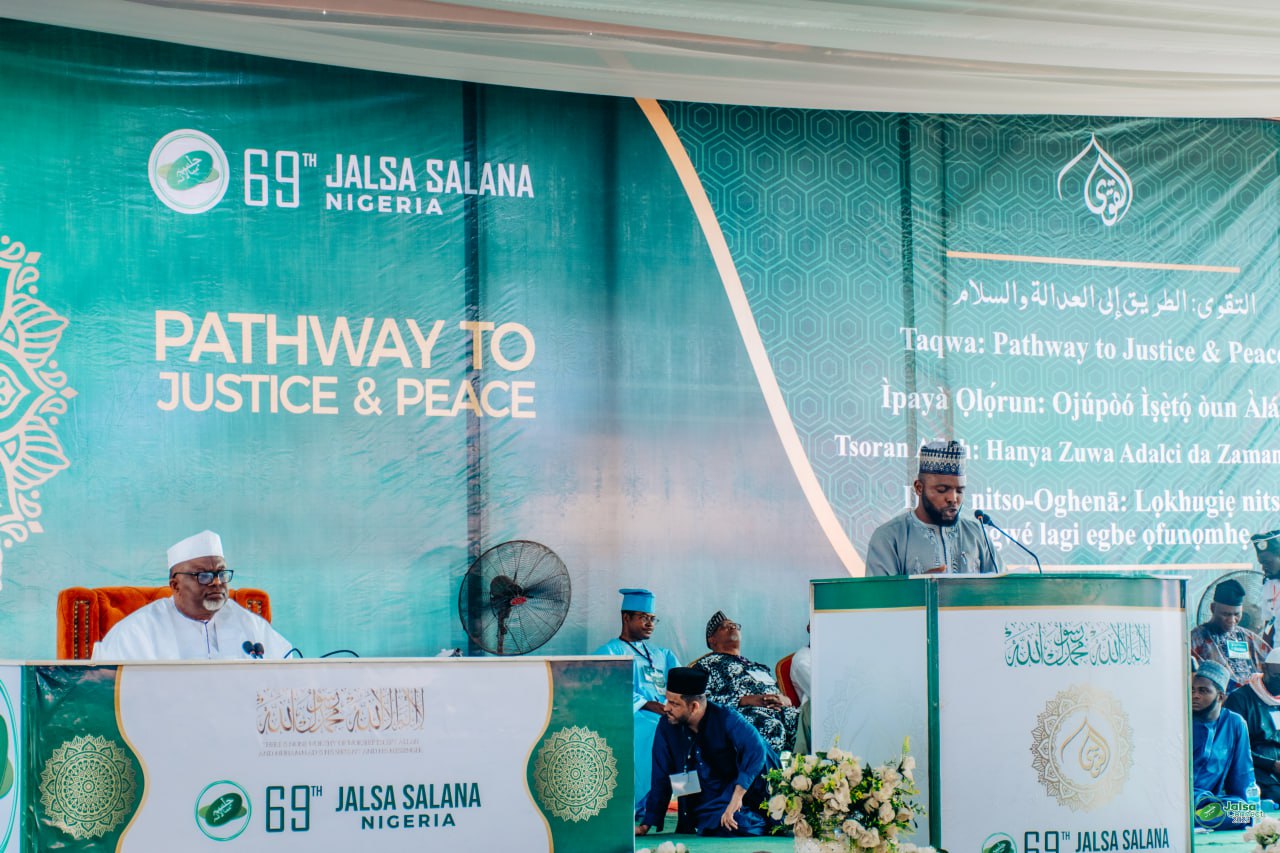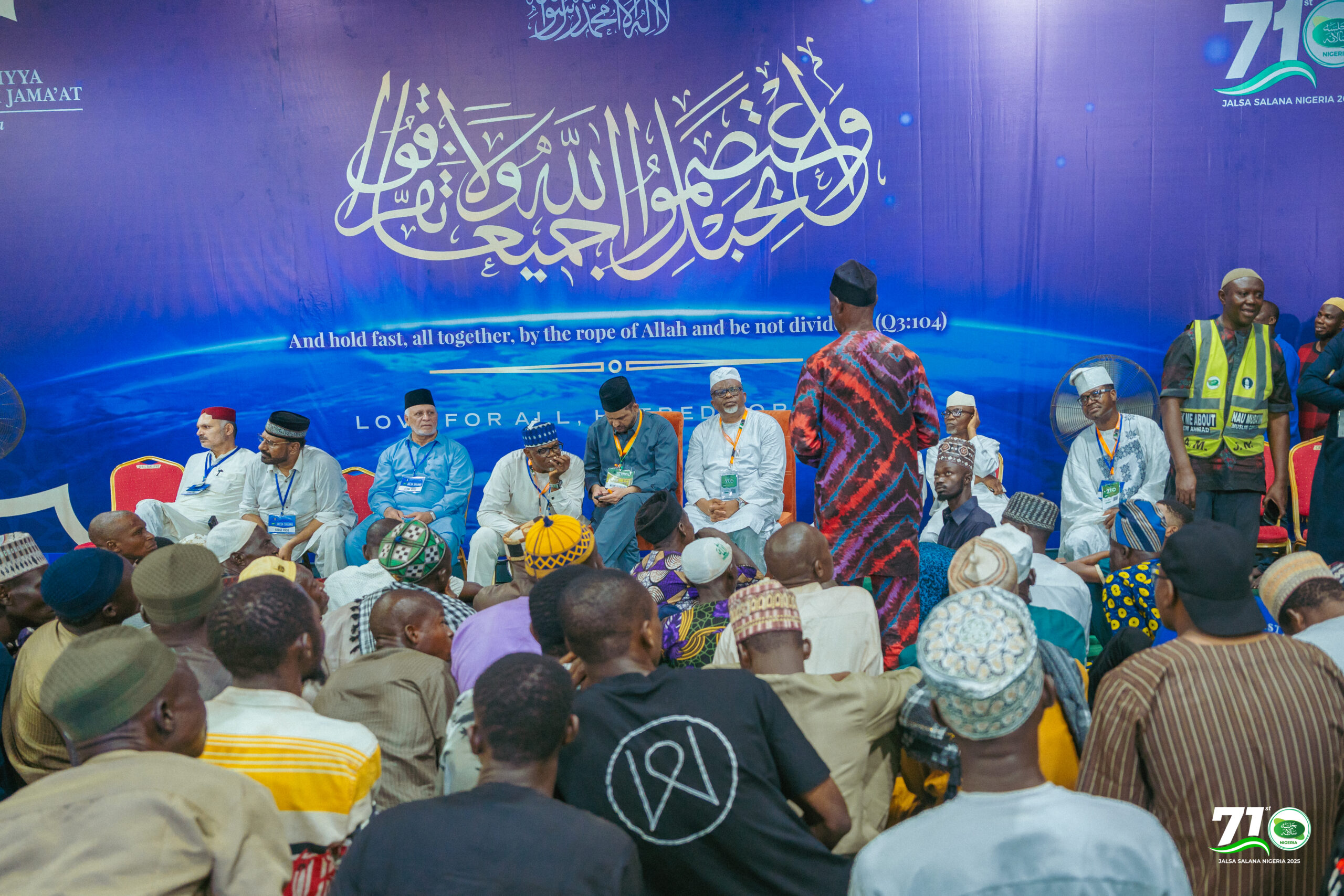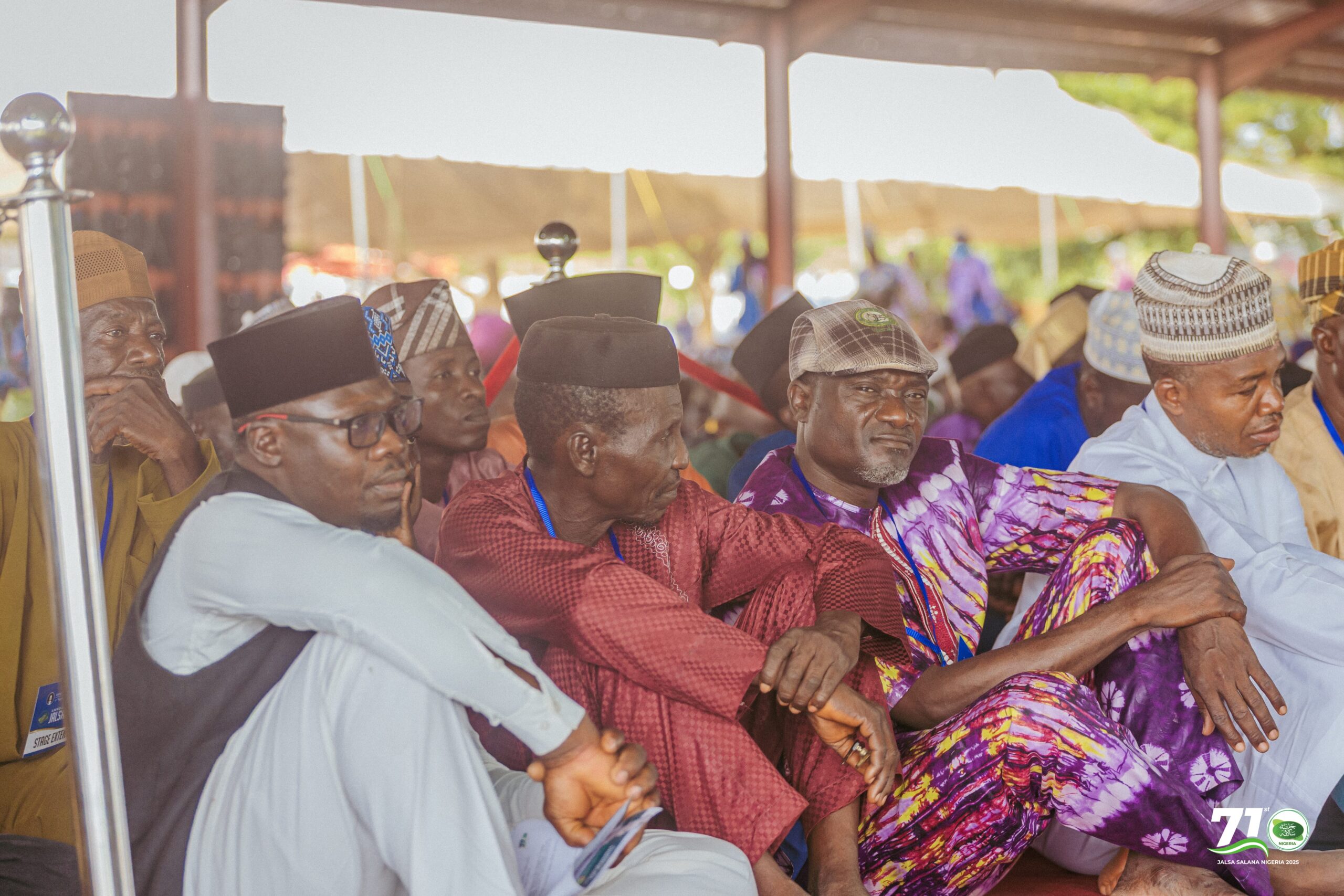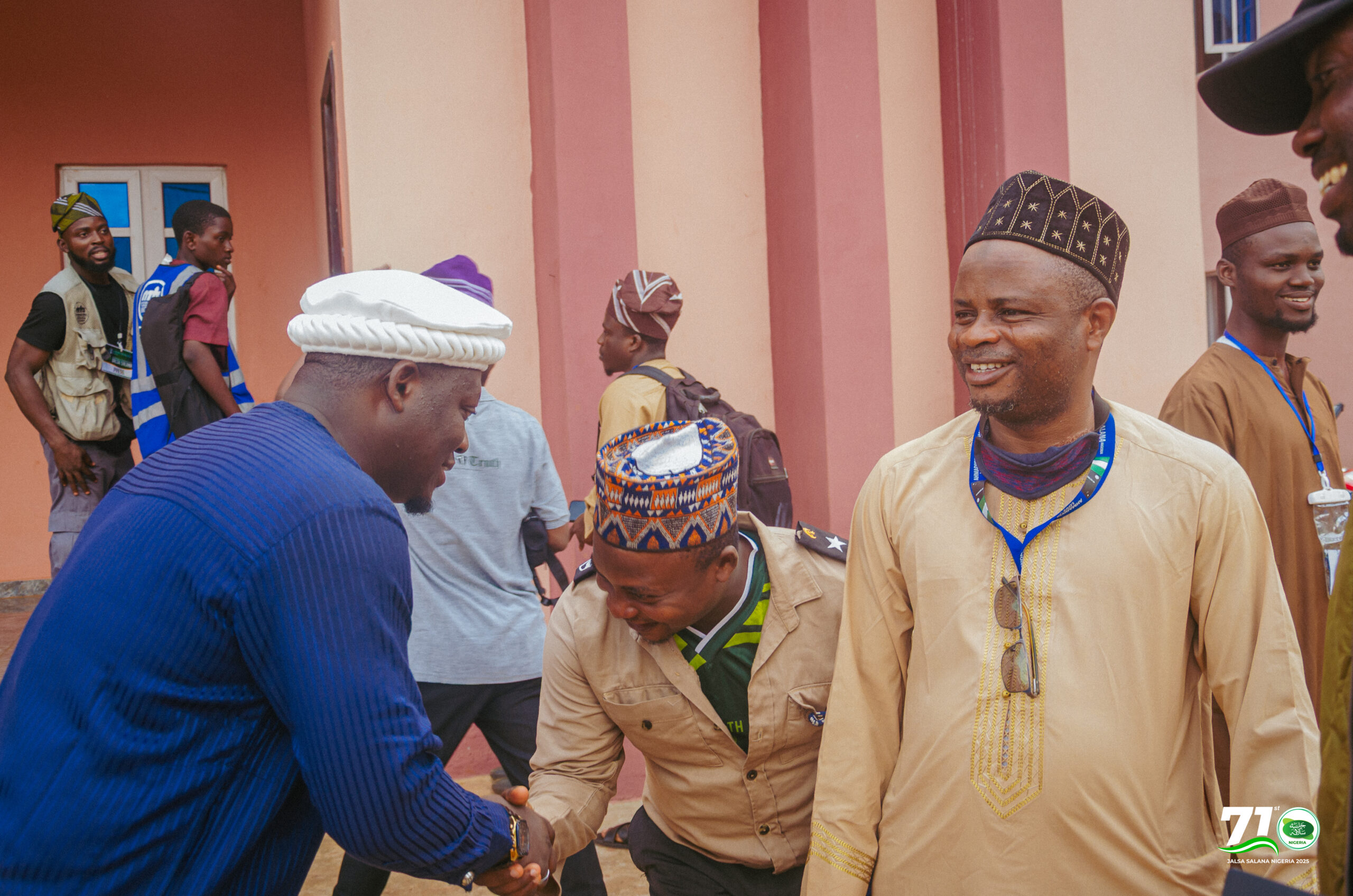By Abdussalam Abdulfatir
A place where people from all walks of life gather for the purpose of improving their moral and spiritual standards as well as increasing their mutual love and understanding through Islamic brotherhood, that is JALSA SALANA.
The heart of every member of the Ahmadiyya community is filled with joy and happiness at the mention of jalsa salana, never mind the occasion itself.
Every attendee, members and non-members alike, can attest to the peaceful and harmonious environment they find themselves in during the days of Jalsa, to the extent that they wish it never come to an end.
However, in order for all of these to be achieved, prospective Jalsa attendees need to thread with caution when it comes to dealing with one another, especially while correcting your fellow Jalsa attendees, in order not to turn a haven of peace and tranquillity into an exhibition of hatred and discord.
THE NEED TO CORRECT WITH WISDOM
The world, as we all know, is now a global village. This translates to the fact that almost all, if not all gatherings consist of people from different religious and ethnic backgrounds.
Nigeria, for example, has over 250 ethnic groups dwelling within her landscape. Furthermore, aside from the two popular religions, namely Islam and Christianity, there are other religious groups found in the country, thereby making our society a heterogeneous one.
Jalsa Salana Nigeria is expected to accommodate people from different socio-cultural backgrounds all over the country. Each ethnic group, aside from having different languages also have varying ethics and ethos of their community.
It is therefore expected that there could be differences in ideas and opinions as well as some behavioural differences during this noble gathering. Whenever this difference in opinion occurs, it is our responsibility to correct one another with wisdom.
This isn’t just advice, it is actually an injunction by Allah the Almighty as said in the holy Qur’an ch 16 vs 126
ادع الي سبيل ربك با الحكمة و الموعظة الحسنة و جادلهم با التي هي احسن ان ربك هو اعلم بمن ضل عن سبيله و هو اعلم با لمهتدين
‘’Call unto the way of thy Lord with wisdom and goodly exhortation, and argue with them in a way that is best. Surely, thy Lord knows best who has strayed from His way; and He knows those who are rightly guided.’’
In the verse above, Allah commands the holy prophet (saw) and by extension, his followers to always correct people not just with wisdom but also by good exhortation. This means that we should never be harsh while correcting our fellow attendees of Jalsa.
The verse further states that even when an argument ensues, we should present our argument in the best manner. This is because, as stated in the concluding part of the verse, Allah knows best who is right and who is wrong, none of us knows.
The Holy Prophet Muhammad (saw) is reported to have said in a hadith reported on the authority of Hadhrat Abu Hurairah (ra) that: He isn’t a powerful man, he who could overcome his opponent in physical combat, but the powerful one is he who controls himself during the time of anger. ( Bukhari and Muslim ).
This means that controlling one’s anger is the best way to be regarded as a powerful one not by displaying it.
During his Friday sermon on the 26th of July 2024, whilst addressing the jalsa UK workers and volunteers, His Holiness Mirza Masroor Ahmad (aba) stated ‘’they should consider all guests to be the guests of the promised messiah. The volunteers should exhibit the highest standards of morality. They should overlook whatever behaviour may be displayed by the guests and should maintain their own high standards of behaviour‘’
He further states ;
‘’The promised messiah used to say that the heart of a guest is like a mirror, it is fragile and must be carefully cared for. It can shatter upon the smallest thing and be put on trial over the smallest thing.
From the above-quoted sermon of our beloved Imam, it is obvious that aside from members of the community, guests who are non-members or even non-muslims are also expected to be among the jalsa attendees. Jalsa workers, volunteers and other members who will be attending jalsa would therefore be doing a huge disservice not just to themselves but also to the jama’at if they fail in applying wisdom by either ignoring people’s faults or correcting their errors in the best manner.
His Holiness further states ;
Volunteers and guests should bear in mind that there are non-ahmadis and non-muslims attending the jalsa as well. Hence, if they exhibit the highest level of morality, then this will serve as a form of silent propagation (tabligh) which greatly impacts the guest.
THE ART OF CORRECTING WITH WISDOM
Allah, the Almighty, is the only being that is perfect. As for human beings, we cannot be perfect, we only need to strive to improve our morals and spiritual standards every day of our lives.
The only perfect human being was our prophet Muhammad (S.A.W), this was because he followed Allah’s injunctions to the letter. One of those injunctions includes:
فبما رحمة من الله لنت لهم ولو كنت فظا غليظ القلب لانفضوا من حولك فاعف عنهم واستغفر لهم وشاورهم في الأمر فإذا عزمت فتوكل على الله إن الله يحب المتوكلين
‘’ And it is by the great mercy of Allah that thou art kind towards them, and if thou hadst been rough and rough- hearted, they would surely have dispersed from around thee. So pardon them and ask forgiveness for them, and consult them in matters of administration, and when thou art determined, then put thy trust in Allah, surely Allah loves those who put their trust in Him’’. ( Ch 3 Vs 160)
The verse above shows that only the mercy of Allah makes one kind-hearted. It further states that anyone who is rash and hard-hearted will only disperse people from around him. Jalsa workers and volunteers alike should therefore take note of this and try not to be the reason why people disperse from Jalsa.
Allah, The Almighty then goes on to teach us ways to achieve this. Namely;
- Pardon Them: فا عف عنهم
The first thing is to be willing and ready to pardon people who wrong or offend us, or go against any given rule of this blessed gathering.
2. Ask forgiveness for them:و استغفر لهم
Aside from pardoning such people, we should also help them to seek forgiveness from Allah, The Almighty.
3. And consult them in matters of administration: و شاورهم ف الامر
The next step therefore is to consult them, and seek their opinions as to why they have decided to do what they have done. This will not only allow us to realize their point of view but also allow us to correct them in the best possible manner.
4. And when you are determined, put your trust in Allah: فإذا عزمت فتوكل على الله
Lastly, we should always pray to Allah to grant us wisdom in order to control the situation around us better. Also, may Allah grants wisdom and understanding to our fellow Jalsa attendees as He is the only one who could make us achieve anything we desire to achieve.
Therefore, in order to have a harmonious Jalsa, these guidelines should be followed to the latter.
The Khalifah of the time also advised us in the sermon quoted earlier, 26th, July 2024, that
“In such gatherings, it is possible for disagreements to arise. It could be that a guest becomes displeased with a volunteer and says something to them, and then perhaps the volunteer also responds in a certain way which starts a back-and –forth. This creates a negative aura and impacts the environment, even if such instances are sparse. Allah the Almighty says that true believers suppress their anger. Hence, both the one being wronged then even then they should exhibit patience. If a volunteer feels that a guest is being unjust in what they are saying, then they should do away with anger.
I conclude with the prayers of His Holiness that “ May Allah enable everyone to implement these things and may the Jalsa be blessed in every respect” Aamin.
About the Author
A trained missionary of Ahmadiyya Muslim Jama’at of Nigeria and has been serving for over 13 years. He’s also the Ondo Dil’a Qaid i.e the Ondo district head of Majlis khuddam ul Ahmadiyya Nigeria . A public speaker as well as an aspiring writer . Currently serving the Jama’at as a missionary in Ondo town, Ondo state.





